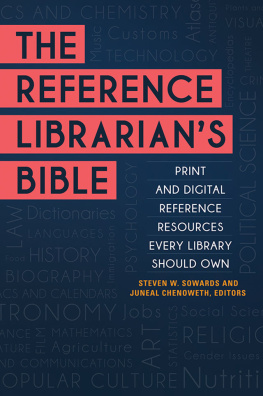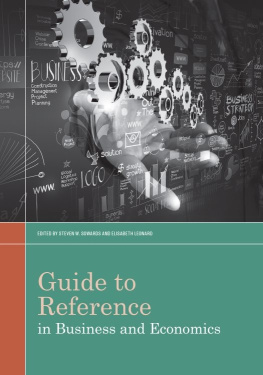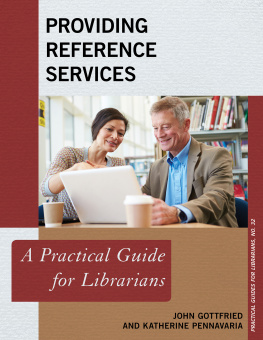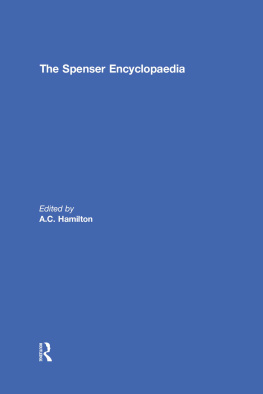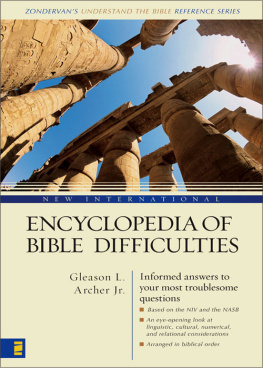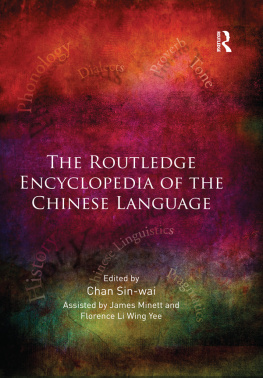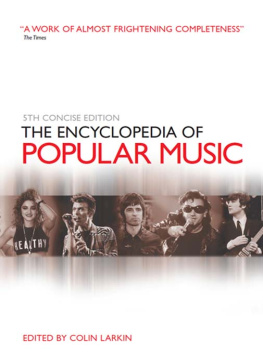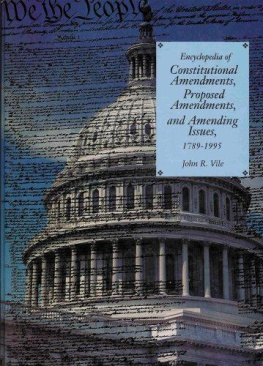The Reference Librarians Bible
The Reference Librarian's Bible
Print and Digital Reference Resources Every Library Should Own
Steven W. Sowards and Juneal Chenoweth, Editors
Copyright 2018 by Steven W. Sowards and Juneal Chenoweth
All rights reserved. No part of this publication may be reproduced, stored in a retrieval system, or transmitted, in any form or by any means, electronic, mechanical, photocopying, recording, or otherwise, except for the inclusion of brief quotations in a review, without prior permission in writing from the publisher.
Library of Congress Cataloging in Publication Control Number: 2018023764
ISBN: 978-1-4408-6061-4 (paperback)
978-1-4408-6062-1 (ebook)
22 21 20 19 18 1 2 3 4 5
This book is also available as an eBook.
Libraries Unlimited
An Imprint of ABC-CLIO, LLC
ABC-CLIO, LLC
130 Cremona Drive, P.O. Box 1911
Santa Barbara, California 93116-1911
www.abc-clio.com
This book is printed on acid-free paper 
Manufactured in the United States of America
Contents
Why Reference Books (and Other Reference Tools)?
Not long ago, it was fashionable to claim that everything was on the Internet and therefore to claim that reference books and even libraries were obsolete. Both claims were wrong.
Our understanding of information on the Internet is more nuanced today. Yes, a great deal of valuable information is freely available, but it is mixed up with outdated information, ill-informed opinion, advertising disguised as information, and flat-out disinformation or fake news. Readers and researchers want to discover, evaluate, and choose good sources, but doing so is challenging, confusing, time consuming, and tiring. In addition, high-quality information often comes from for-profit, copyrighted, licensed sources; most readers cant reach that information without paying for it or having someone pay for it on their behalf.
Libraries and librarians, of course, exist to solve these problems. Librarians evaluate information; choose, license, and buy high-quality resources on behalf of readers in their communities; and make resources both freely available and more easily discoverable. Those resources include reference tools: books, databases, annuals, maps, and more.
We turn to reference tools for reliable informationcomplete, balanced, objective, and accurate, and currentsince the most up-to-date information is often the most accurate. Reference tools also save our time because they are designed to deliver answers clearly and directly. All of these characteristics contrast with the problems we meet when searching the Internet.
Authority is basic to reference resources. In a world of competing, contradictory, or misleading answers, we need to know the sources behind the answers. Why should we believe that an answer is true? Reference booksand other reference resourceshighlight credentials so that readers can draw informed conclusions about the sources of the information they see, as well as the information itself. Reliable reference tools clearly identify authors and editors and state their expertise, experience, and affiliation. Reliable reference tools come from identifiable publishers and vendorswhether those are for-profit firms, nonprofit organizations, government bodies, or communitiesand we can evaluate those publishers as part of the information-seeking process. Reference tools also are evaluated by reviewers in the pages of trusted sources like Publishers Weekly , Choice , and American Reference Books Annual (ARBA) . Finally, the reference tools in library reference collections have been evaluated by librarians when they select and acquire those tools based on local needs and professional standards of excellence.
The "Best" of ARBA
The resources noted in this volume have passed all of these tests. The content was written by credentialed authors, published by reputable organizations, and selected by numerous libraries for their collections. These resources also were reviewed in ARBA . This is a collection of reviews originally written for the annual volume of ARBA or the ARBAonline database and repurposed here. These are the best of ARBA reviews or, more accurately, ARBA s reviews of a core list of the best possible reference resources.
Recent information is a key element in accuracy and completeness, and so nearly all of the resources selected for this volume were published since the turn of the century in 2000. In many cases these works have a tradition of value, appearing in multiple editions, updated as needed. The ARBA reviews included here do not always reflect the latest editions, but later editions are noted.
There is an old saying: You go to war with the army you have. In reference, you answer the questions with the resources you have. Even the best source will not be helpful if you cant put your hands on it, so access is another criterion for selection in this best collection. These are reviews of works widely provided by American libraries (in various editions) or freely available online.
What You Will Find in This Book
For The Reference Librarians Bible , the editors selected 500 reviews of significant reference tools out of some 29,000 reviews in the ARBAonline database or from earlier print volumes of American Reference Books Annual . These are the reviews as printed at the time: the names of the original review contributors appear at the end of those texts, along with their professional affiliations at the time of review. In a few cases, the editors wrote new reviews to fill gaps. Supplementary notes often follow, such as additional comments about the work, notes about newer editions that have appeared since the review was written, and mention of related works or works with similar titles. Library of Congress (LC) and Dewey classifications appear, as an aid to browsing for other works on the same topic. ARBA does not review every new edition of reference books, so reviews may reflect earlier editions (editions that in most cases remain on the shelves of libraries). Reviews or supplementary notes may mention earlier classics as well. Original reviews may or may not make purchase recommendationsnevertheless, we recommended each of these 500 titles for most public and academic libraries.
Entries are numbered, 1 to 500, and show the title or name of the resource, the authors or editors if stated, the publisher and year of publication; and the price. Price figures typically are those from the date of original publication. Given inflation and the healthy used book market, accurate current prices are fluid and elusiveat the same time, there is some utility in knowing that a particular book had an original cost of $25, as opposed to another book on the same topic that originally sold for $250. For digital resources, prices are often negotiated based on library sizeother digital tools may be free online. Year of publication may not appear for online resources or recurring annuals.
The editors recommend these works as a core set of best reference sources to turn to, in a wide range of subject areas. Their recommendations also reflect a national consensus about quality and significance. These works attracted commitment and support from authors and editors, and then from editorial teams at publishing houses. After publication, ARBA and its librarian-reviewers regarded these works as important enough to review.

